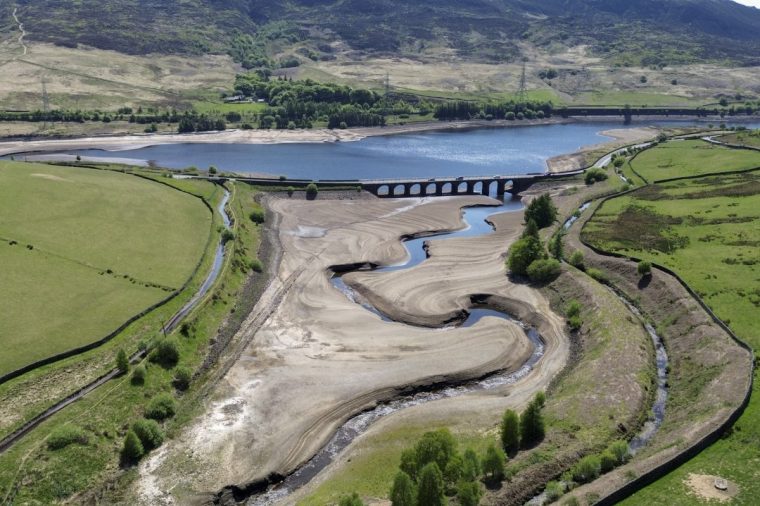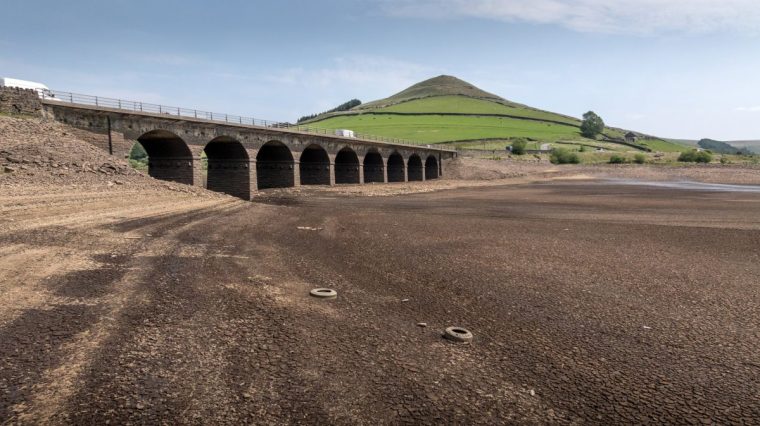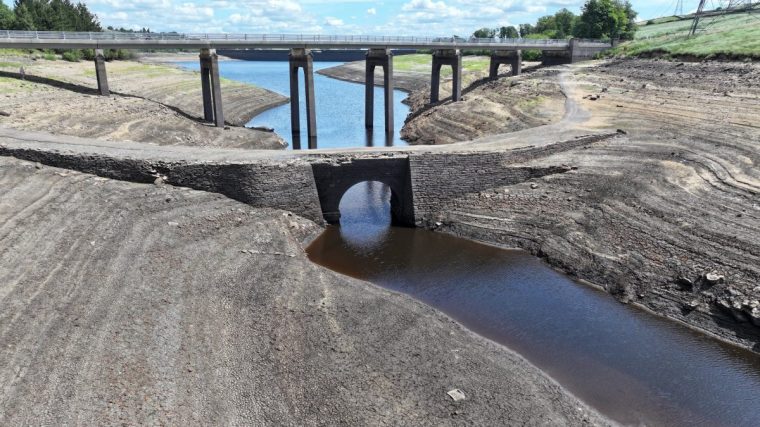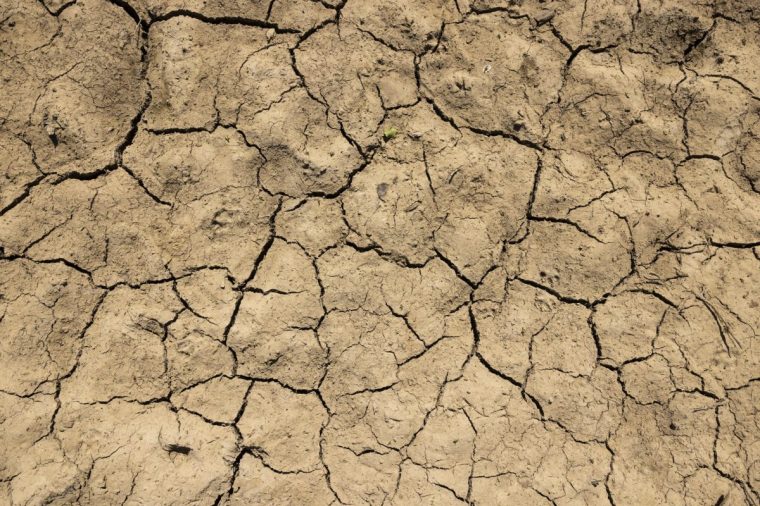Fears hosepipe ban could last throughout the autumn as dry weather continues
Hosepipe bans are likely to remain in force for parts of the UK well into the autumn as reservoir levels fall to new lows.
Water companies said that despite a forecast of heavy rain on the horizon this week the Temporary Use Bans (TUB) are not going to be lifted any time soon.
Four water companies currently have TUBs in force: Thames Water, Southern Water, South East Water and Yorkshire Water.
Thames Water told The i Paper the National Drought Group has defined the current water situation in England as a “nationally significant incident.”
South East Water has revealed its reservoir levels are “continuing to fall” after a long, hot summer which has included four heatwaves.
The water firm, which has had a TUB in place since 18 July for parts of Kent, East and West Sussex affecting about 1.4 million customers, said one of its reservoirs in West Sussex had now reached its lowest level in more than 12 months, and was less than half full.
Nick Price, Head of Water Resources at South East Water, said: “While demand has reduced and we have dramatically stepped up our leak repair programme, levels in our surface water reservoirs in Sussex are continuing to fall due to the low rainfall we have experienced over the past five months.
“Ardingly Reservoir is now at its lowest point in over 12 months at 44 per cent full, a level we do not usually see until much later in the year.
“With more warm weather on the horizon, we’re asking our customers to keep water use around the home to essential purposes only: drinking, washing and cooking.”


Thames Water, which brought in a hosepipe ban on 22 July for parts of Swindon, Gloucestershire, Oxfordshire, Berkshire and Wiltshire affecting around 1.1 million customers, also said any decision on lifting restrictions would be weather dependent requiring “prolonged and significant rainfall” with the possibility they will still be in place in the autumn.
While rain is forecast for the coming week as the remnants of Hurricane Erin head to the UK it is not expected to be enough to change the situation dramatically.
Jake Morley, Thames Water’s local engagement manager, told The i Paper: “We’ll continue to keep customers updated on the ban and when we expect it to end.
“We’re keeping a close eye on weather forecasts and customer demand as we move through the summer and based on the current situation we don’t anticipate lifting the ban in the coming months.
“We don’t intend to end the restrictions this month and we will communicate when we are in a position to start lifting restrictions.”

After four heatwaves this summer and warm, dry weather this month, he said the ban restrictions were “extremely important” as the less water used meant less water needed to be taken from local rivers.
And he said the prospect of hosepipe bans continuing into the autumn “is a possibility given how dry the forecast is”.
“This will depend on the weather – although our customers’ help in using water wisely will also be vital”, he added.
Southern Water said it was “far too soon” to talk of lifting its TUB, introduced on 21 July and affecting around one million customers in Hampshire and the Isle of Wight.
It said the duration of the ban would depend on the weather, which is unpredictable.
The situation was being monitored closely but as the region is still “in the middle of a prolonged dry spell” talk of lifting restrictions was premature.
It added that customers and stakeholders would be informed if the situation changed.
Both United Utilities and Severn Trent Water, which cover areas affected by drought, have told The i Paper they have no plans to introduce a hosepipe ban at at present.
The introduction of TUBs means households can no longer:
- Water the garden or plants at home
- Clean private vehicles or boats
- Fill or maintain a swimming pool, paddling pool, hot tub or cold-water plunge pool at home
- Fill or maintain a domestic pond or ornamental fountain
- Clean your home’s walls or windows
- Clean paths, patios or artificial outdoor surfaces
Householders can still carry out these activities if using water from a bucket or a watering can and hosepipes can be used if the water is not sourced from the mains.

The National Drought Group has declared five areas of the UK to be officially in drought this summer: Yorkshire, Cumbria and Lancashire, Greater Manchester Merseyside and Cheshire, East Midlands, and the West Midlands.
Areas in prolonged dry weather (the phase before drought) are: Northeast, Lincolnshire and Northamptonshire, East Anglia, Thames, Wessex, Solent and South Downs.
Some of these areas in the south of England are already covered by hosepipe bans.
The drought group, which includes the Met Office, Government, regulators, water companies, the National Farmers’ Union, Canal & River Trust, anglers, and conservation experts, met earlier this month to discuss the current water shortfall situation in England, now defined as a “nationally significant incident.”
Reservoirs are now 67.7 per cent full on average across England, according to the group, with the lowest levels at these reservoirs: Blithfield, Staffordshire (49.1 per cent), Derwent Valley, Derbyshire (47.2 per cent), Chew Valley Lake, Somerset (48.3 per cent) and Blagdon, Somerset (46.3 per cent).
Rainfall in July was 89 per cent of the long-term average for the month across England, making it the sixth consecutive month of below average rainfall.
It comes after the Met Office declared spring 2025 had broken historical climate records by being the warmest for mean temperature since 1884 in all four nations of the UK, while England experienced its driest spring in more than 100 years.
Provisional statistics from the Met Office this month have revealed summer 2025 could also be one of the warmest on record.
The UK’s mean temperature from 1 June to 17 August currently stands at 16.2°C, which is 1.6°C above the long-term meteorological average.
Post a Comment for "Fears hosepipe ban could last throughout the autumn as dry weather continues"